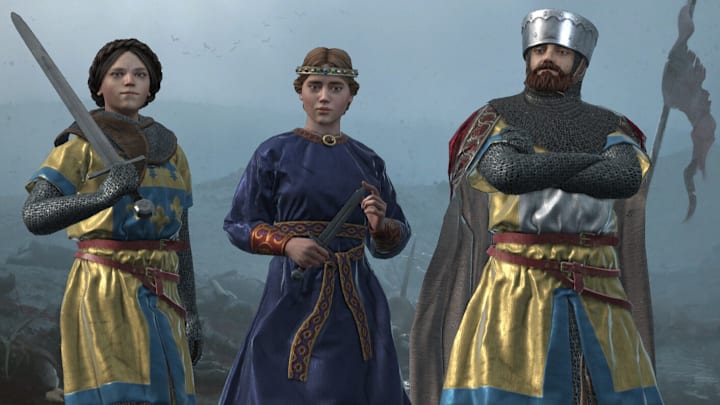Paradox shows off Crusader Kings 3: All Under Heaven’s world map and it’s glorious
By Marco Wutz

There is much to be excited about for fans of grand strategy games at the moment with Paradox cooking Europa Universalis 5 and the monumental All Under Heaven DLC for Crusader Kings 3 — and the studio finally published its first dev diary on this ambitious expansion, including a first look at the gloriously large world map.
Players can choose a ruler from anywhere between Europe’s Atlantic coast and Japan’s eastern shores, making the entire Eurasian landmass into a massive playground for intrigue and war.
Naturally, China is the focus point of this entire expansion. It’s massive, powerful, and similarly impactful to East Asian culture and history as Rome has been for much of the West. To capture this importance – and the fact that China simply was much more powerful than any other state on Earth at the time – Paradox will introduce Hegemony as a new title tier.
Aside from China, players can form a Hegemony by reuniting Rome or uniting India — these are the only two entities that could potentially rival the Middle Kingdom.
China’s Celestial Government builds on the foundations of the Administrative Government that was introduced for Byzantium with the Roads to Power DLC, so you’ll see similar structures like house heads and provincial governors. Unlike Byzantium’s Influence, the Celestial Government will run on Merit. Characters build up Merit through service and competence. It is not a currency to be spent, but rather accumulates over a character’s lifetime and makes them eligible for ever higher jobs. Influence is still present in the Celestial Government and can be used for intrigues. Characters can also earn Merit by participating in the new Examination Activities.
The Celestial Government handles finances a bit differently as well. Governors send income from their provinces to the Imperial Treasury, which in turn pays them a salary and funds the provinces with a certain amount of money. Thus, Gold and Treasury are two split resources: Gold is used for personal expenses, while Treasury is used to invest into provinces or troops.
China will also feature the Dynastic Cycle mechanic to represent the comings and goings of ruling dynasties throughout its history. This includes stable eras that allows its rulers to focus their efforts on expansion or technological progress, earning Legitimacy when successfully pursuing the chosen goal. But dynasties eventually stumble and unstable eras occur. Events such as natural disasters and wars suddenly eat up Legitimacy and governors become uppity. Should too much Legitimacy be lost, this may result in a chaotic era and civil war.
Players looking for a challenge can start with the Tang in 867, who are embroiled in such an unstable era.
There will be special options for Chinese Tributaries as well, allowing them to form closer ties to the empire and receive certain benefits.
Japan, too, features special mechanics to represent its government form. Rulers in the country can be Ritsuryō – closer to Administrative rulers – or Soryō – closer to Feudal rulers. Relations between houses are tracked more long-term in Japan, resulting in close ties or intense rivalries. Houses, in turn, can form Blocs inside the country to wage war on their rivals.
In CK3’s time period, the Japanese emperors are largely reduced to ceremonial rules and actual power lies with the Kampaku (Ritsuryō) or the Shogun (Soryō), who control Imperial Policy and can implement laws in the entire country. Players can still start as the emperor, though, and perhaps try to shift the power dynamics.
Both ruler types will have additional options for building up their house estates and can upgrade their families via House Aspirations.
In Southeast Asia, the Mandala Government will reign supreme at the start. This has a strong religious flavor and strongly relies on Tributaries. Players will be able to form personal cults around their rulers and build up their Capital Temples via the brand-new Great Project feature, which allows rulers to pool resources for buildings like the Great Wall or to help a region recover from a natural disaster.
Finally, Paradox revealed that the Silk Road will be represented on the map, though trade won’t be added to the game. Still, controlling parts of the Silk Road will yield economic benefits and it allows Chinese Innovations to travel West in a more speedy manner.
More news on DBLTAP:
feed